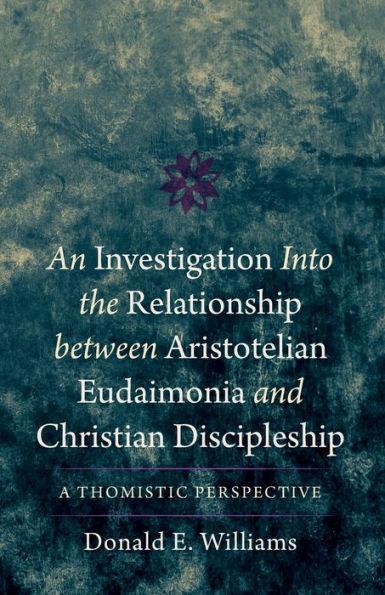An Investigation into the Relationship between Aristotelian Eudaimonia and Christian Discipleship: A Thomistic Perspective

An Investigation into the Relationship between Aristotelian Eudaimonia and Christian Discipleship: A Thomistic Perspective
The quest for happiness, human flourishing, and well-being is one of the most universal, primeval desires of humankind. It is a natural desire to care for one's personal interest, to seek some measure of flourishing. In two of his great works, Thomas Aquinas argues that perfect happiness is not possible in this life. Humankind's quest for happiness is found in the contemplation of the truth which begins in this life but will be consummated in the Beatific Vision when we shall see Christ face to face.
In the second part of his imminent work The Summa Theologica, Thomas Aquinas seeks to integrate Aristotelian philosophy with Christian theology. The cornerstone of his theoretical system is eudaimonia, human flourishing, well-being, or happiness. Aquinas ultimately concludes that perfect happiness (beatitude) cannot be achieved in this life. However, imperfect happiness is possible.
For Aquinas, humankind's happiness (eudaimonia) is realized in the sublime contemplation of the truth. This quest for wisdom and understanding is specific to humankind, as opposed to other creatures. Aquinas asserts that the perfect discernment, the realization of truth will occur in the Beatific Vision when we see God face to face.
PRP: 173.60 Lei
Acesta este Pretul Recomandat de Producator. Pretul de vanzare al produsului este afisat mai jos.
156.24Lei
156.24Lei
173.60 LeiLivrare in 2-4 saptamani
Descrierea produsului
The quest for happiness, human flourishing, and well-being is one of the most universal, primeval desires of humankind. It is a natural desire to care for one's personal interest, to seek some measure of flourishing. In two of his great works, Thomas Aquinas argues that perfect happiness is not possible in this life. Humankind's quest for happiness is found in the contemplation of the truth which begins in this life but will be consummated in the Beatific Vision when we shall see Christ face to face.
In the second part of his imminent work The Summa Theologica, Thomas Aquinas seeks to integrate Aristotelian philosophy with Christian theology. The cornerstone of his theoretical system is eudaimonia, human flourishing, well-being, or happiness. Aquinas ultimately concludes that perfect happiness (beatitude) cannot be achieved in this life. However, imperfect happiness is possible.
For Aquinas, humankind's happiness (eudaimonia) is realized in the sublime contemplation of the truth. This quest for wisdom and understanding is specific to humankind, as opposed to other creatures. Aquinas asserts that the perfect discernment, the realization of truth will occur in the Beatific Vision when we see God face to face.
Detaliile produsului









